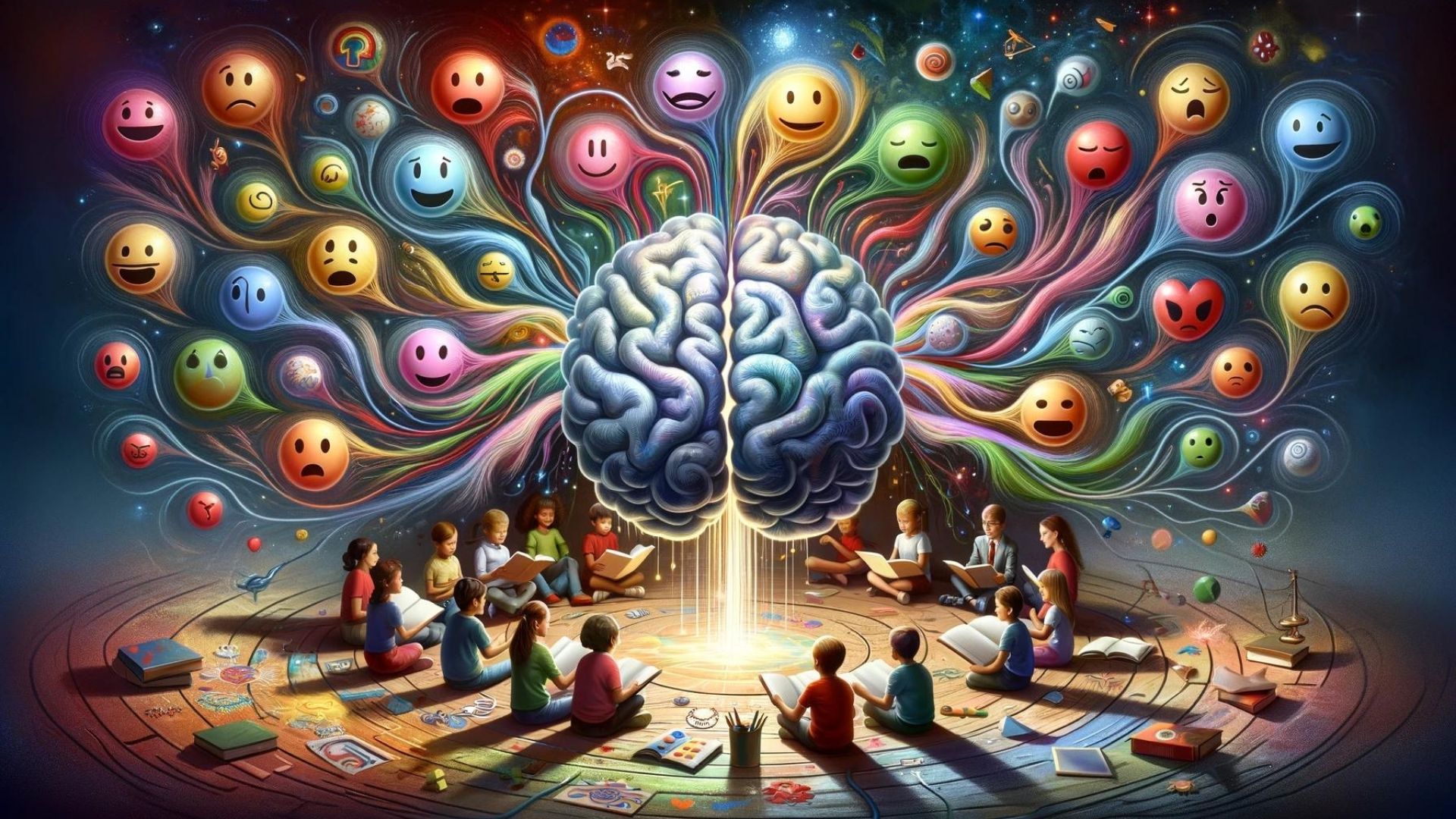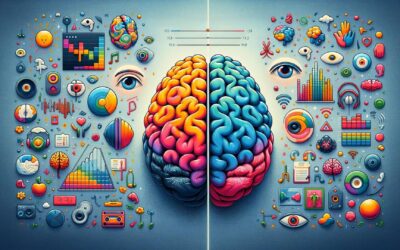- Article Audio
- Your Emotional Brain: The Secret Ingredient in Learning
- The Emotional Rollercoaster of Learning
- How Educators Can Tap into Emotions
- You’re In Control, Too!
- Master Your Emotions, Master Your Learning
- Why Should You Care?
- Key Takeaways
- Keywords with Definitions
- Frequently Asked Questions (FAQs)
- Myth Buster
- Let’s Talk!
Article Audio
[spreaker type=player resource=”episode_id=59085604″ width=”100%” height=”200px” theme=”dark” playlist=”false” playlist-continuous=”false” chapters-image=”true” episode-image-position=”left” hide-logo=”false” hide-likes=”false” hide-comments=”false” hide-sharing=”false” hide-download=”true”]Your Emotional Brain: The Secret Ingredient in Learning
Think back to your school days. Chances are, you vividly remember the teacher who made you feel excited to learn, the subject that sparked genuine curiosity, or maybe the time you aced a test and felt a surge of pride.
Turns out, these emotions are far more than just fleeting moments. Science shows they are deeply woven into how your brain functions, particularly when it comes to learning.
The Emotional Rollercoaster of Learning
- Eureka! Joy Fuels Discovery: The “aha!” moment, the thrill of understanding a complex concept, releases dopamine. This reinforces the learning process, making the experience more memorable and enjoyable.
- Frustration Can Be Your Friend: Feeling a bit challenged? That touch of frustration signals your brain to work harder. Overcoming it leads to a sense of accomplishment, boosting your confidence.
- Anxiety Blocks the Door: Worries and test anxiety can literally scramble your thinking. Your brain’s focus shifts away from learning and towards managing the stressful feelings.
- Boredom: Your Brain’s Snooze Button: If something feels too easy or irrelevant, your brain checks out. Without curiosity or engagement, learning fizzles out quickly.
How Educators Can Tap into Emotions
Great teachers intuitively know this. They use storytelling to spark awe, gamification to fuel healthy competition, or break down complex tasks to combat frustration. All this is backed by science – they’re hacking your brain to help you learn more effectively!
You’re In Control, Too!
Here’s the empowering part: you can take charge of your own learning experience by tuning into your emotions:
- Cultivate Curiosity: Be an explorer. Ask questions, seek connections to things that fascinate you. This ignites natural learning processes.
- Embrace the Right Amount of Challenge: Push yourself a bit outside your comfort zone – not so much that you become overwhelmed, but enough to stay sharp.
- Reframe Negative Emotions: View a setback as a puzzle to solve, not a sign of failure. Focus on what you can control – your effort and strategy.
- Celebrate Those Wins: Take a moment to acknowledge even small achievements. That positive boost motivates you to keep going.
Master Your Emotions, Master Your Learning
Whether you’re a student, lifelong learner, or simply someone looking to expand your mind, emotions are your secret weapon. By understanding how they influence your learning, and by taking simple steps to manage them, you tap into the incredible potential of your brain.
Now, here’s your challenge: the next time you sit down to learn something new, pay attention to your feelings along the way. Do you notice moments of joy, frustration, or even boredom? How can you use those emotional cues to tweak your approach and get the most out of your learning experience?
Tell us about your discoveries in the comments below!
Why Should You Care?
- Improved Learning Outcomes: Understanding emotional levers leads to better learning, both academically and in everyday life.
- Self-Awareness for Success: Knowing how your emotions affect your learning empowers you to adjust and overcome obstacles.
- Emotional Intelligence in All You Do: This translates to better communication, problem-solving, and resilience, not just in the classroom.
Key Takeaways
- Emotions Are Central to Learning: They’re not some fluffy side-effect but core drivers of how your brain processes information.
- Positive AND Negative Emotions Play a Role: Joy, frustration, even boredom, all shape the learning journey in unique ways.
- Educators Can Shape Emotional Climate: Great teachers use emotional intelligence to create engaging and effective learning spaces.
- You Can Control Your Learning Experience: Self-awareness around emotions empowers you to learn more effectively.
- Harness Emotions = Unlock Potential: Learning to work with your emotions unlocks the full power of your brain.
Keywords with Definitions
- Emotional intelligence: The ability to be aware of, understand, and manage your own and others’ emotions.
- Dopamine: Neurotransmitter linked with reward and motivation, released during pleasurable learning experiences.
- Frustration: A mildly negative emotion that signals challenge and can motivate increased effort.
- Anxiety: Intense worry or nervousness that can interfere with focus and thinking.
- Boredom: Lack of engagement or stimulation, causing the brain to disengage from learning.
- Gamification: Using game-like elements (points, competition, etc.) to increase learner engagement.
- Curiosity: A desire to learn and explore, intrinsically tied to powerful learning processes.
- Comfort zone: Where tasks feel easy and familiar – great for a baseline, but learning often happens outside it.
- Reframing: Changing how you view a situation. Example: Seeing a setback as a learning opportunity, not a failure.
- Lifelong learner: Someone who views learning as an ongoing process, not confined to formal education.
Frequently Asked Questions (FAQs)
Can I improve my emotional intelligence for learning? Absolutely! This skill can be developed through self-reflection, mindfulness techniques, and seeking constructive feedback.
What if I have severe test anxiety? Seek professional help. Therapists can teach strategies to manage anxiety, improving academic performance.
How do I make boring subjects more engaging? Look for connections to your interests, ask “why” questions, and find ways to make the learning active (e.g., hands-on experiments).
Myth Buster
Myth: True learning is purely logical and emotion-free.
Reality: Emotions are deeply woven into how our brains process information, impact memory, and motivation. Logic and emotions work together for optimal learning.
Let’s Talk!
- How have emotions sabotaged your learning in the past? What did you learn from it?
- What’s a subject you find surprisingly emotionally engaging? Why?
- Think of a great teacher you had. How did they foster a positive emotional climate in the classroom?
Share your experiences and insights in the comments!












0 Comments